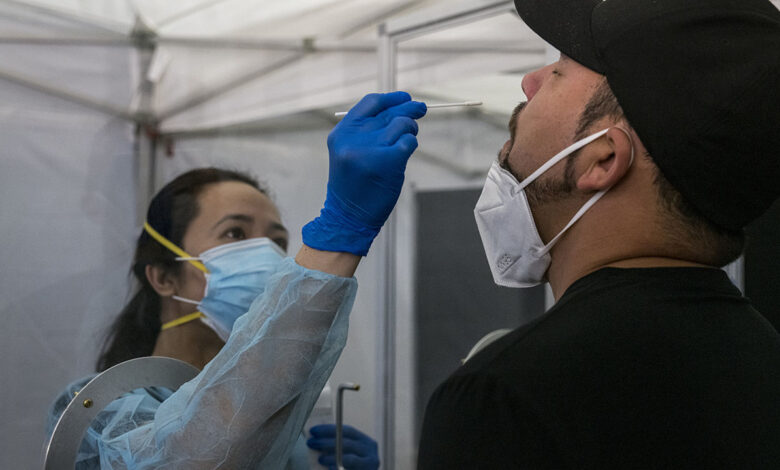Which COVID-19 variants are circulating in US?

Public health officials are urging Americans who haven’t yet been vaccinated against the coronavirus to seek out a shot amid concern regarding the Delta variant which is spreading rapidly in some parts of the U.S. Early data on the AstraZeneca and Pfizer-BioNTech vaccines suggest receiving two doses offers a higher level of protection against variants than one, but a Centers for Disease Control and Prevention (CDC) advisory committee recently said there isn’t enough data to predict if, when or even who might need an eventual booster shot.
The CDC is monitoring several variants circulating in the U.S., which were recently given Greek Alphabet names for easier identification. Here is a look at what we know about each:
Alpha: The Alpha variant, which is also referred to as the B.1.1.7 variant and was initially detected in the U.K., was identified in the U.S. in December 2020. It’s classified as a Variant of Concern (VOC) by the CDC, and is estimated to be about 50% more transmissible than the original SARS-CoV-2 strain detected in the U.S., and has the potential for increased severity but has minimal impact on vaccine efficacy.
Beta: The Beta variant, which is also referred to as the B.1.351 variant and was initially detected in South Africa, was first identified in the U.S. at the end of January 2021. It’s classified as a VOC by the CDC, and is estimated to be about 50% more transmissible than the original SARS-CoV-2 strain detected in the U.S. Health officials said it significantly reduces impact of certain monoclonal antibody treatments, but remains susceptible to others. It may reduce vaccine efficacy.
AS VARIANT RISES, VACCINE PLAN TARGETS ‘MOVABLE MIDDLE’
Delta: The Delta variant, which is also referred to as the B.1.617.2 variant and was initially detected in India, was identified in the U.S. in March 2021. It’s classified as a VOC by the CDC, and has shown increased transmissibility and the potential to reduce efficacy of monoclonal antibody treatments and vaccines.
Gamma: The Gamma variant, also referred to as the P.1 variant, was initially detected in Brazil and first identified in the U.S. in January 2021. It’s classified as a VOC by the CDC, and significantly reduces the impact of certain monoclonal antibody treatments, but remains susceptible to others. It also may reduce vaccine efficacy.
Epsilon: The Epsilon variants, also referred to as B.1.427 and B.1.429 variants, were first identified in California in February 2021. The variants are labeled VOC by the CDC, and are associated with about a 20% increase in transmissibility, and reduce efficacy of some monoclonal antibody therapies. They are also associated with reduced vaccine efficacy.
CLICK HERE FOR COMPLETE CORONAVIRUS COVERAGE
The CDC has made note of several others, currently classified as Variants of Interest (VOI), but notes there is limited prevalence or expansion in the U.S. or other countries. The Eta, Iota, Kappa and Zeta variants all fall within the VOI category.
Source link




